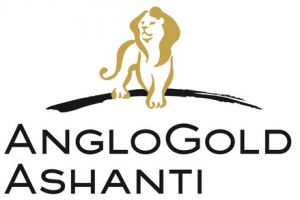AngloGold Ashanti generates $71m free cash flow after beating operating guidance
 AngloGold Ashanti says it has generated $71 million of free cash flow in the second quarter of 2015 with production and costs beating guidance.
AngloGold Ashanti says it has generated $71 million of free cash flow in the second quarter of 2015 with production and costs beating guidance.
The company in a statement copied to ghanabusinessnews.com, said production in the second quarter of 2015 was 1.007 million ounces at a total cash cost of $718 per ounce (by continuing operations), compared with 1.098 million ounces at a total cash cost of $833 per ounce in the second quarter of 2014. The result compared with guidance of 960,000oz to one million ounces at $770/ounce to $820 per ounce.
AngloGold said all-in sustaining costs (AISC) fell by 12 per cent from $1,052/oz in the second quarter of last year, to $928/oz. All-in-costs also decreased by 12% from $1,155/oz to $1,021/oz.
However AngloGold said production in 2015’s second quarter was lower compared to the same period last year due to last year’s sale of the Navachab mine in Namibia, Obuasi’s move to limited operations phase and continued safety-related interruptions in South Anglogold said it had been cutting overhead expenditure by more than two-thirds and lowering its AISC by about a quarter since the end of 2012, in response to lower gold prices.
The company said whilst production from South Africa was lower year-on-year, the mines also improved their performance from the first quarter with a 9% increase in production.
“The company’s international mines saw AISC 17 per cent lower than the second quarter of 2014 at $844/oz. Standout performances were delivered by the Geita and the South American mines in Brazil and Argentina, while the contribution from Tropicana and Kibali reflected their full ramp-up”, the statement said.
Srinivasan Venkatakrishnan, Chief Executive Officer of AngloGold Ashanti was quoted as saying: “Cost management will continue to be a key driver for us. Whilst we’ve greatly improved the balance sheet following the sale of CC&V, this will not diminish our focus on improving free cash flow and returns through active portfolio management, capital discipline, and unrelenting focus on our operations.”
By Emmanuel Odonkor
